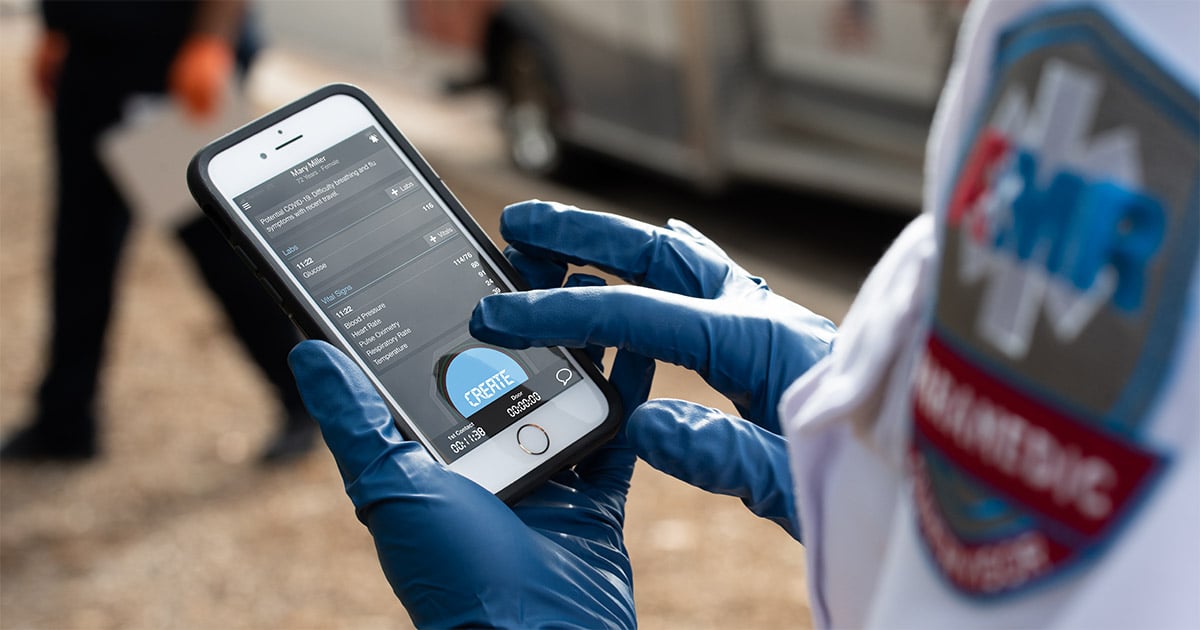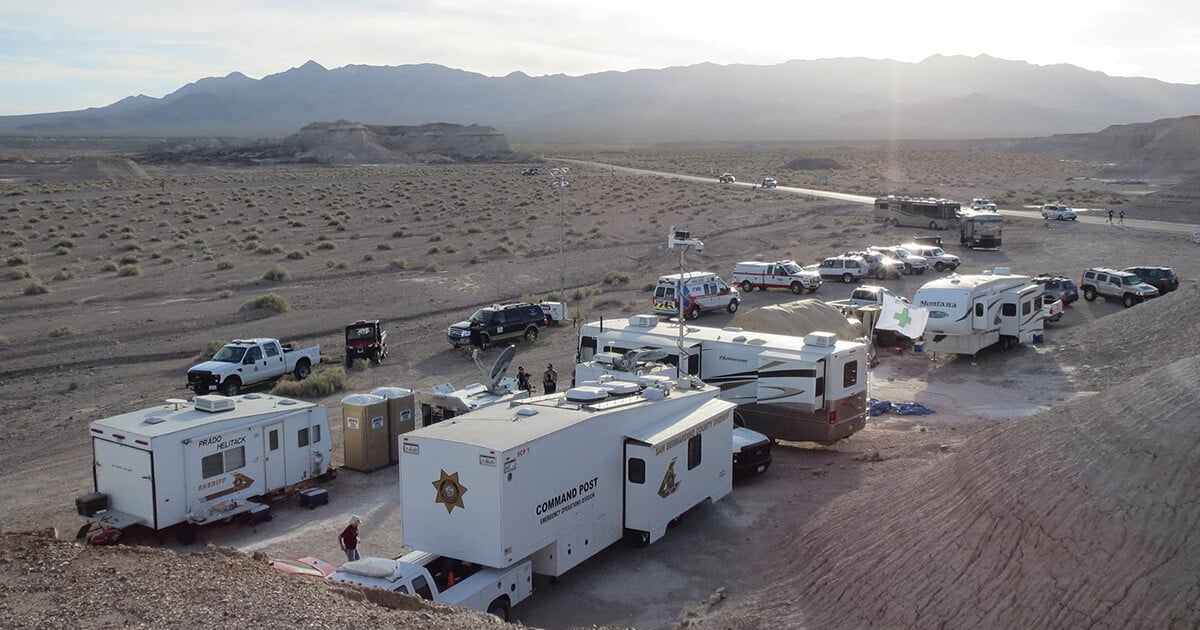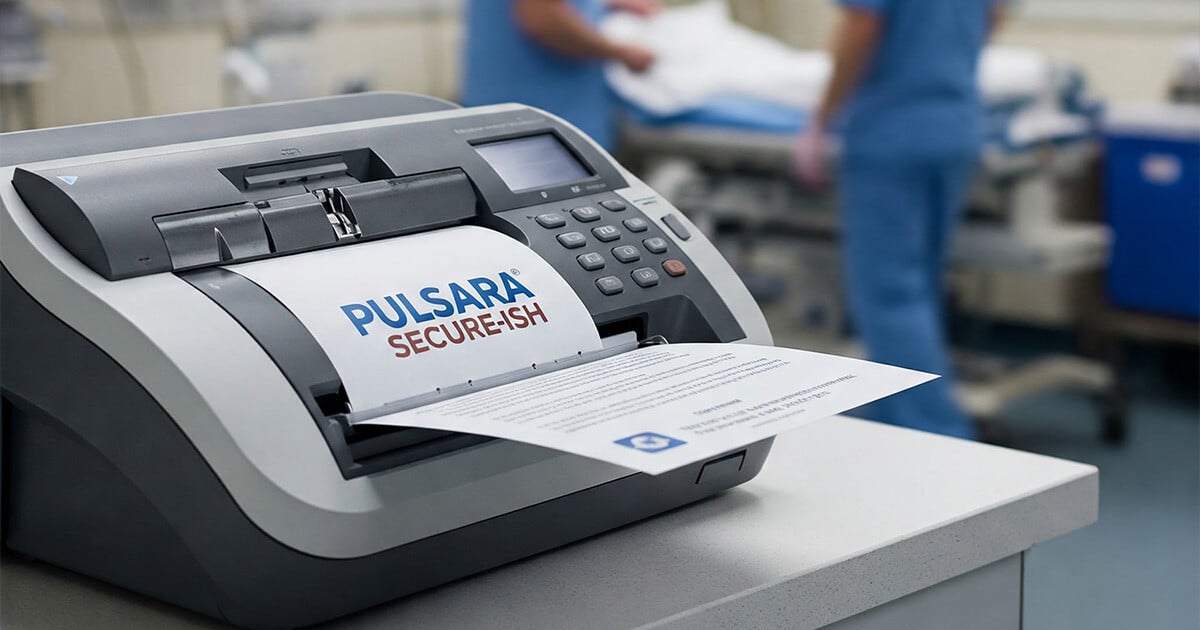Baker to Vegas: Leveraging Pulsara to Manage a Planned Event
Although they have the advantage of prior awareness and preparation, large-scale planned events pose unique challenges for emergency management...
2 min read
 Team Pulsara
:
Jan 04, 2021
Team Pulsara
:
Jan 04, 2021

In time-sensitive emergencies, time is tissue. Every minute makes the difference in your patient's outcome, for better or worse.
That's why UCHealth and AMR - Colorado Springs / El Paso County partnered with Pulsara, a healthcare communication and telehealth platform, to save time when patient outcomes are on the line. Pulsara creates a secure, unified patient channel—replaces multiple phone calls, radio reports, faxes, and pagers—and allows care teams to communicate efficiently and effectively when treating patients.
In this live-action retelling of a true story, watch how AMR and UCHealth use Pulsara to streamline and speed their communication processes throughout the patient's journey, making sure that every member of the care team is in the know, when they need to know—from dispatch answering the 911 call, to the hospital staff closing the case after the patient’s treatment is complete.
Once AMR arrives on the scene of a possible stroke patient, they use Pulsara to create a new patient channel. They can then select UCHealth as their destination and alert the hospital about the incoming patient, providing the hospital with important information about the patient's vital signs, condition, and any other pertinent information—including their ETA.
The relevant team members are added to the case and notified immediately. Hospital staff are then able to acknowledge the alert, letting medics know that the hospital will be ready for them.
Because all the relevant team members are in the loop, they can communicate with each other more efficiently, saving valuable time for the patient. With advance notice, CT techs can prepare the lab and notify AMR to bring the patient directly to the CT on arrival. And once it's confirmed that the patient has a suspected LVO, the IR Team can respond to let the rest of the team know they're ready to receive the patient.
Once the intervention is complete, hospital staff complete the case. Everybody receives a notification and can review the case—even the medics who first responded to the call.
These advancements in care team coordination and communication are so much more than positive metrics. They represent measurable improvements that directly impact people's lives. Studies report an average decreased treatment time of approximately 30% when using Pulsara. (Learn how CHRISTUS Good Shepherd Medical Center - Longview achieved 59% decrease in door-to-needle time with Pulsara; or how Australia's Latrobe Regional Hospital improved door-to-CT times by 68% — reducing them from an already impressive 22 minutes down to an average of just 7 minutes)!
Pulsara's goal is to improve the lives of patients and caregivers by simplifying communication for all care teams—from EMS and hospital to Public Health and even FEMA Medical Operations Coordination Cells. Pulsara makes it easy to communicate about time-sensitive emergencies such as COVID-19, STEMI, stroke, trauma, sudden cardiac arrest, and sepsis, as well as other use cases like mental health and community paramedicine.
How can we help your care team?
Special thanks to the awesome staff and clinicians at AMR and UCHealth in Colorado Springs, CO for helping make this video possible! Thank you for all you do!
To learn more about how UCHealth is leveraging Pulsara to deliver better, more personalized care for COVID-19 patients, check out 911-Initiated Telemedicine: How Clinical Leaders Are Using Mobile Technology.

Although they have the advantage of prior awareness and preparation, large-scale planned events pose unique challenges for emergency management...

For Those Who Love a Good "Oopsie!" At Pulsara, we pride ourselves on enabling secure, HIPAA-compliant communication for healthcare teams. But let’s...

March Recap A New Integration: Improving Data Management, Streamlining Workflows, and Improving Care CoordinationOnly a few days ago, we announced...